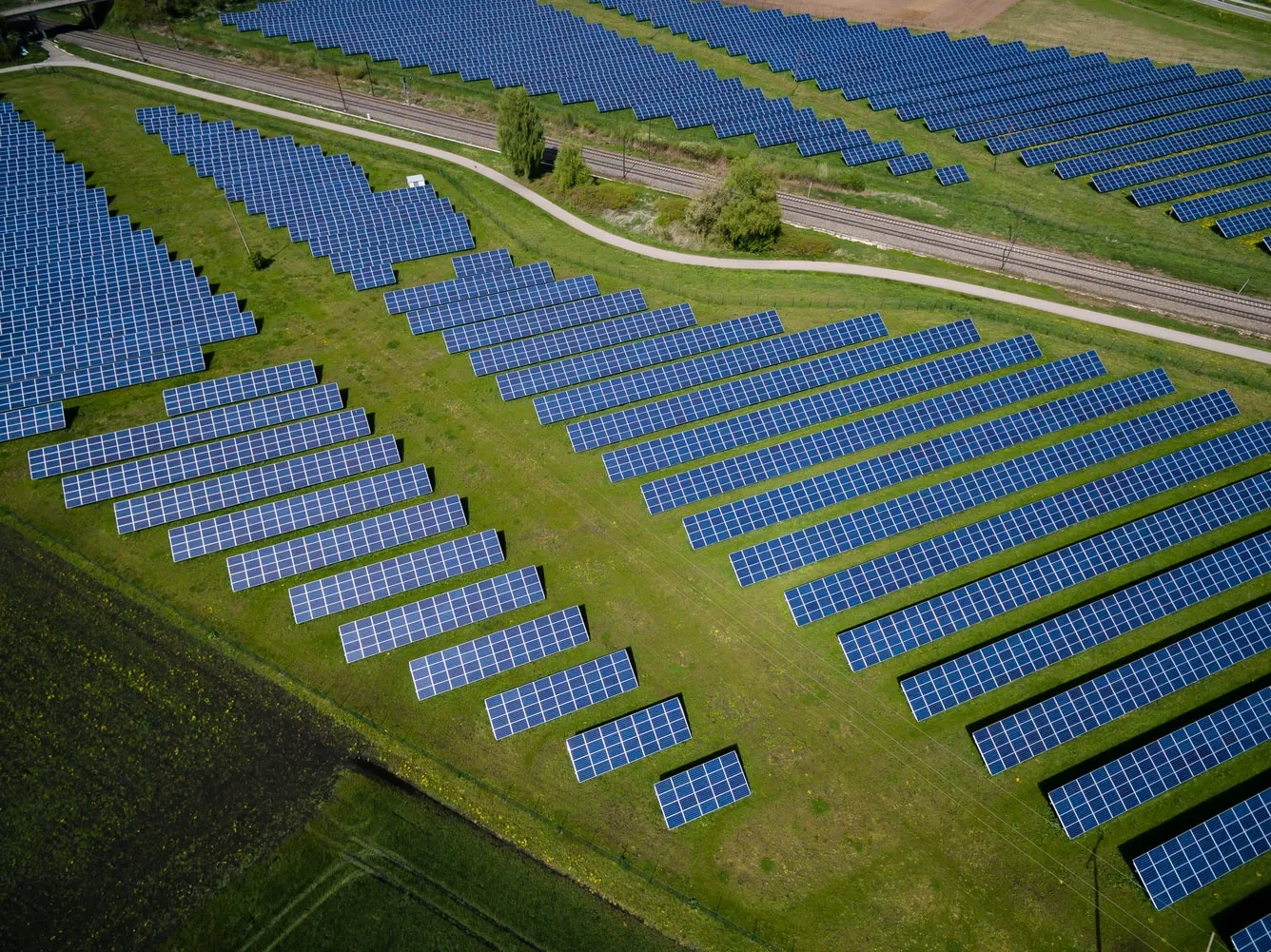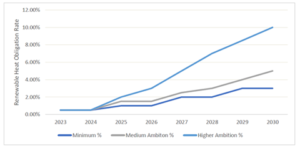DECC are seeking views on the possible introduction of a Renewable Heat Obligation (RHO) which would require energy suppliers in the heat sector to ensure a proportion of the energy they supply is renewable. The aim of introducing a RHO would be to help Ireland achieve its now legally binding targets of a 51% reduction in GHG emissions by 2030 compared to 2018 levels and achieving net-zero emissions by 2050.
DECC consults on Renewable Heat Obligation
Ireland’s National Energy and Climate Plan (NECP) for 2021 – 2030 sets an overall target of at least 34% for the share of renewable energy by 2030 across electricity, heating and cooling and transport and RES-H&C target of 24% by 2030. The NECP, published in 2020, sets out Ireland’s contribution to the EU’s decarbonisation targets and will eventually need to be revised in line with increased ambition at EU level. The EU’s Renewable Energy Directive (RED) has a current target of 32% for the level of renewable energy in the overall EU energy mix, but the recently published Fit for 55 package proposes to increase this to 40%. The existing RED states that Member States must “endeavour to increase the annual average share of renewable energy in heating and cooling by an indicative 1.3 percentage points over the periods 2021 – 2025 and 2026 – 2030”.
The Department highlights the poor progress made to date in decarbonising the heat sector in Ireland having had the lowest proportion of renewable energy in heat in Europe at 6.3% in 2019, compared to an EU average of 22%. Existing policies and programmes in place to decarbonise heat in Ireland include updated building regulations which require that a proportion of energy demand in new buildings must come from renewable sources, the SEAI residential and community energy efficiency upgrade schemes and the Support Scheme for Renewable Heat (SSRH) which supports the adoption of renewable heat systems by non-domestic heat users. Renewable energy supported through this support scheme would not count towards the RHO.
Compared to the Energy Efficiency Obligation Scheme (EEOS) which aims to reduce energy consumption via energy saving measures taken on the demand-side, the RHO would focus on reducing the carbon intensity of the energy on the supply-side. The RHO would place an obligation on fuel suppliers for heating (oil, LPG, gas, coal and peat) to ensure a certain proportion of the fuel is renewable. The obligation would also apply to the portion of fossil fuel input used in CHP plants to generate heat. DECC propose excluding electricity supplied for heat from the RHO as it already has a relatively high share of renewable energy which is projected to continue increasing.
The Department propose setting a Heat Obligation Rate for each year equal to the proportion of non-renewable energy supplied for heating by each obligated energy supplier that must come from renewable sources. The scheme would be introduced in 2023 and the heat obligation rate would begin at 0.5% for the first two years, equal to 260 GWh of renewable energy (based on 2019 data). Depending on the ambition for the target share of renewable energy in heat in 2030 from this scheme, the obligation rate would increase to at least 3% and possibly up to 10% by 2030.
| Ambition Trajectory / Year | 2023 – 2024 | 2025 | 2026 | 2027 | 2028 | 2029 | 2030 |
| Minimum | 0.5% | 1% | 1% | 2% | 2% | 3% | 3% |
| Medium | 0.5% | 1.5% | 1.5% | 2.5% | 3% | 4% | 5% |
| High | 0.5% | 2% | 3% | 5% | 7% | 9% | 10% |
Like the EEOS, it is proposed that the RHO would not apply to suppliers who sell less than 400GWh of energy per year. Obligated Parties who do not supply the proportion required under the scheme would be able to trade and buy credits from suppliers who supply more than their required proportion. Compliance for first three years (2023-25) would be assessed in one multi-year assessment, after which there would be annual assessments. There would be no penalties issued for noncompliance in the first two years of the scheme but compliance would still have to be achieved for the first three years by the end of 2025.
The renewable energy must be certified and meet the RED sustainability criteria. To promote the uptake of green hydrogen the Department propose applying a multiplier, i.e., 1kWh of green H2 would count as 2kWh towards the obligation.
The consultation closes on the 29th of October. DECC are to decide whether or not to introduce the scheme by the end of this year and if so, how it would be structured and implemented. There would then be a second consultation on the terms and conditions of the scheme.


